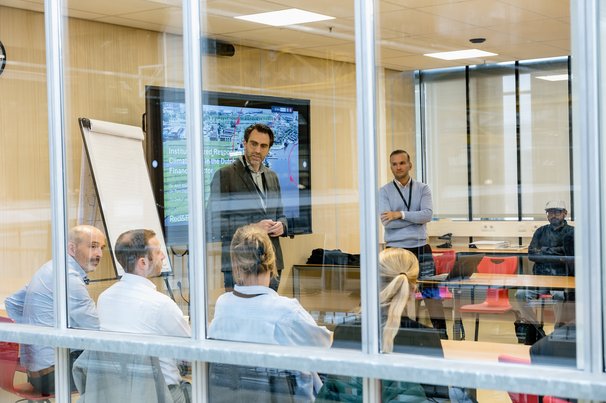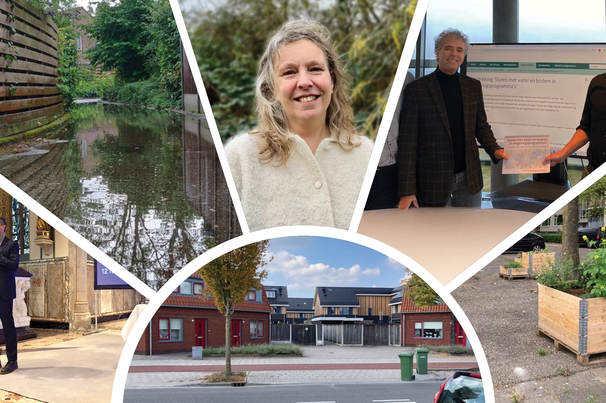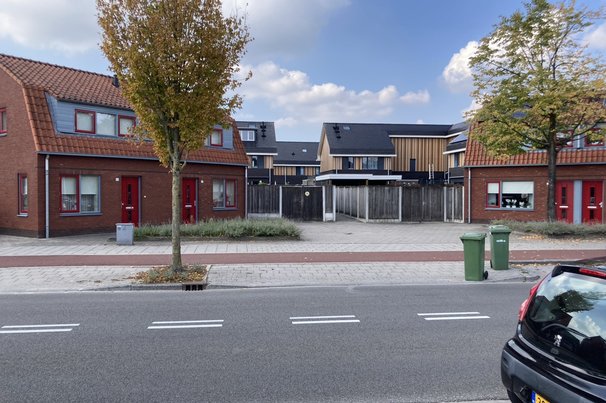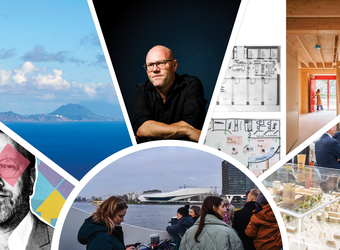13 september 2013
4 minuten
Nieuws TU Delft is joining forces with Wageningen UR and Massachusetts Institute of Technology (MIT) and a number of business partners (Shell, KPN, TNO, as well as De Waag Society) to establish a new Institute of Technology in Amsterdam. The institute will focus on developing technological solutions to issues facing the urban environment. The City of Amsterdam is investing between 20 and 50 million euros in this new centre for knowledge and education. The Faculty of Architecture and the Built Environment played a key role in the international competition to secure this prestigious commission.
The Amsterdam Institute of Advanced Metropolitan Solutions (AMS), as it is currently known, will set up ‘living labs’ to look for technological innovations for urban development. Its research areas will include dealing with water and food supplies, improving the energy performance of buildings and waste and data processing. “Increasing urbanisation raises a whole range of issues. These often relate to streams that flow through the city: traffic, data, food, waste, water and energy. All of these in turn have an impact on urban planning and vice-versa”, says Karin Laglas, Dean of the Faculty of Architecture and the Built Environment. “It is wonderful that we will now be able to begin exploring this new area.” The urban system is under increasing pressure as people across the world move to the cities. By 2050, it is expected that three-quarters of the world’s population will be living in cities.
In recent months, Laglas has played a lead role in presenting what would ultimately prove to be a winning combination. Since April, businesses and knowledge institutions from the Netherlands and abroad have been able to submit competing proposals for the new initiative. The City of Amsterdam’s main objective is to bind businesses, knowledge institutions and technological talent to the city. But it also wants to connect the city to the rest of the world. After the first selection, in which five proposals were shortlisted, the Dutch-American alliance was selected as the most successful proposal. MIT’s strong international position also played a role in this. This leading university of technology already has several locations elsewhere in the world. For the Faculty of Architecture and the Built Environment, MIT’s involvement is of particular interest because the university has achieved great advances in its application of sensing technology – remote monitoring for research purposes.
The alliance could also help generate additional external funding, for example from the EU’s Horizon 2020 research programme.
TU Delft has already collaborated with MIT a number of times in the past and has even more intensive contacts with Wageningen University. The research into urban recycling is set to provide particular added value for AMS.
TU Delft already has experience with a ‘living lab’ in Amsterdam, in the CityZen research programme, and this month also saw the launch of Studio Amsterdam in close collaboration with the City's Spatial Planning Department. In this project, Master’s students are carrying out a study of the Overhoeks strip in Amsterdam, led by Visiting Professor Jacob van Rijs (MVRDV).
As a “small major city”, Amsterdam is an excellent test environment for researchers, argues Laglas. “In terms of scale, it is possible to retain an overview, but it is nonetheless a city with genuinely metropolitan characteristics.”
Negotiations on how the available funding will be spent and on the facilities are now set to start. The AMS plan also includes the provision of education. This will also be offered online: people will be able to register for courses around the world. It will even be possible for students to complete the whole of the first year of the Master’s programme online. Students will also have the opportunity to gain experience at the companies that contributed to the plans, such as Shell, Accenture, Alliander, Cisco, IBM, Schiphol, KPN and TNO.
Laglas believes that the establishment of the Amsterdam Institute of Advanced Metropolitan Solutions will not be to the detriment of education and research in Delft or Wageningen. “On the contrary, we will be entering a new area of research and I think that that will help us to attract new students from across the world. Our aim is for AMS to develop into one of the worldwide leaders."
More information
- AMS presentation Karin Laglas (PDF)
- Detailed vision and roadmap AMS (PDF).
Cover: ‘2013.09.22_Faculty of Architecture heads for Amsterdam with MIT and Wageningen_180’





